I have to admit that when I was told that Claire was involved in a project like this I was more than a little surprised. I think we all were. Like many Vietnam veterans (or any veteran for that matter) Claire did not speak about her time in Vietnam very much at all. My sister and I were aware that she had been there during the war and of course my mother, her sister, lived through that turbulent time. There were hints of her experiences in the army, and she spoke of her service in other arenas, including Malaysia but of her time in that conflict, little was said.
Claire began to share a little of her experiences with us as she got older. I remember the Christmas she showed us her medals for the first time, and I remember snippets of stories, vignettes from her time on active duty. She told us why she didn't like having the lights on and the blinds open; what a desk drawer looks like full of side arms; why the sound of choppers upset her even still; about being told to wear her medals on the right because the left was for veterans, and about how the man that mistook her for a widow was unceremoniously disabused because Claire was not only a decorated veteran but also a Captain.
When Claire was diagnosed with cancer, she became more inclined to talk about being a nurse in the army. Perhaps she became a little less inclined to let Vietnam have such a hold on the time she had left.
My aunt was a very private person and perhaps the idea of this website would have made her uncomfortable. Certainly for us it was with much discussion and not a little trepidation that we consented to her being included on the website at all.
When my Aunt recorded the interview that may form part of this project she was in the final stages of a long battle with cancer. It is important to consider her condition at the time these recordings were made. As the trustees of her memory it is important to us to ensure that her story is told the way she would have wanted. It is important that it reflects the dignity and gravity she maintained in her storytelling when she was less ill. I hope that eventually her account of her experiences in Vietnam will be used with compassion and I hope that it will contribute to a greater understanding of the commitment and sacrifice of New Zealand women in war.
We are very proud of her service and we feel that it is important that the women who served and who continue to serve, who felt it their duty and their responsibility, are remembered and that their voices are heard. For me it important that her story is told because she was so reluctant to tell it and her silence did her no good. Perhaps if we think more about what we ask of the people we send to war and the toll it exacts, we will know better how to help them when they return.
Katherine Barnsley






